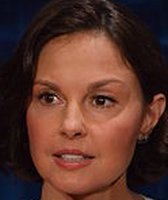Stand up for the facts!
Our only agenda is to publish the truth so you can be an informed participant in democracy.
We need your help.
I would like to contribute
Words have become a central focus of Donald Trump’s response to the Orlando massacre, two in particular: "Radical Islam."
The presumptive Republican nominee has long criticized President Barack Obama for not using the phrase and suggested Obama should resign if he can’t utter the words now. In a speech on immigration and terrorism, Trump said "radical Islam" more than a dozen times and knocked Hillary Clinton, the presumptive Democratic nominee, for her "continuing reluctance to ever name the enemy."
"Hillary Clinton – who has been forced to say the words today after policies she supports have caused us so much damage – still has no clue what radical Islam is, and won’t speak honestly about what it is."
Clinton previously took issue with the term because it "sounds like we are declaring war against a religion." The day after the Orlando attack, though, she said she’s "happy to say" the words radical Islamism or radical jihadism, but emphasized semantics aren’t her priority.
"From my perspective, it matters what we do more than what we say. And you know, it mattered we got bin Laden, not what name we called him," she said on CNN June 13.
Clinton’s willingness to use the description differs from Obama, who still doesn’t like the phrase.
We're not fact-checking this war over "radical Islam," but we wanted to understand more deeply what the words signify. Obama says the phrase legitimizes the group, while critics like Trump contend not using it denies the fundamental issue.
Semantic (in)significance
Following Trump’s speech, Obama rebuked Republicans and their nominee for creating a "political distraction" by fixating on words.
"There has not been a moment in my 7.5 years as president where we have not able to pursue a strategy because we didn't use the label ‘radical Islam.’ Not once has an adviser of mine said, ‘Man, if we use that phrase, we are going to turn this whole thing around,’ not once."Obama said June 14. "So, there is no magic to the phrase ‘radical Islam.’ It is a political talking point. It is not a strategy."
Using the term, Obama argued, would actually bolster into the narrative ISIS and al-Qaeda are pitching: a war between Islam and the West led by them.
"If we fall into the trap of painting all Muslims as a broad brush, and imply that we are at war with the entire religion, then we are doing the terrorists' work for them," he said.
This echoes what Obama has previously said about ISIS, and isn’t all that different from former President George W. Bush’s language following the Sept. 11, 2001, terrorist attacks and at the onset of the war in Afghanistan.
"They try to portray themselves as religious leaders — holy warriors in defense of Islam," Obama said a 2015 summit on violent extremism. "We are not at war with Islam. We are at war with people who have perverted Islam."
"This great nation of many religions understands, our war is not against Islam, or against faith practiced by the Muslim people. Our war is a war against evil," Bush said in January 2002.
And despite using the term recently, Clinton still sees and emphasizes a distinction between a "distorted version of Islam" and the religion itself.
"What I won't do, because I think it is dangerous for our efforts to defeat this threat, is to demonize and demagogue and, you know, declare war on an entire religion. That plays right into ISIS' hands," she said on CNN. "We can call it radical jihadism, we can call it radical Islamism. But we also want to reach out to the vast majority of American-Muslims and Muslims around this country -- this world, to help us defeat this threat, which is so evil and has got to be denounced by everyone, regardless of religion."
Naming the enemy
For Trump and other Republicans, Obama’s failure to use the phrase "radical Islam" and Clinton’s dismissal of its significance reveals a failure to understand the nature of the real threat to the nation.
"Many of the principles of radical Islam are incompatible with Western values and institutions. Radical Islam is anti-woman, anti-gay and anti-American," Trump said June 13. "If we want to protect the quality of life for all Americans – women and children, gay and straight, Jews and Christians and all people – then we need to tell the truth about radical Islam."
In a June 14 statement following Obama’s comments, Sen. Ben Sasse, R-Neb., said Obama was wrong and argued that "telling the truth about violent Islam" is a first step to defeating ISIS (also called the Islamic State or ISIL).
The GOP’s insistence on the specific phrase is aimed at undermining Obama as a reliable leader, Martin Medhurst, a professor of rhetoric and communication at Baylor University, told us previously.
"It's more about credibility and character," Medhurst said.
In contrast, Medhurst sees Obama working from the view that the words you use shape the world you want to work in: "By refusing to say ‘radical Islamic terrorism’, Obama is trying to create a reality where all the world's great religions are on the same side."
Obama seems to agree. In his June 14 statement, he emphasized that he’s called upon Muslim allies to reject the terrorists’ perversion of "one of the world’s great religions." But at the end of the day, Obama said, an enemy by any other name would be just as antagonistic.
"What exactly would using this label would accomplish? What exactly would it change? Would it make ISIL less committed to try to kill Americans? Would it bring in more allies? Is there a military strategy that is served by this? The answer is none of the above."
Our Sources
PolitiFact, "War of words: The fight over 'radical Islamic terrorism'," Dec. 11, 2015
Donald Trump’s Twitter
CNN, "Hillary Clinton: I'll say the words 'radical Islamism'," June 14, 2016
Washington Post, "President Obama’s remarks on ‘radical Islam’ after Orlando shooting," June 14, 2016
TIME, "Read Hillary Clinton’s Speech About the Orlando Shooting," June 13, 2016














































